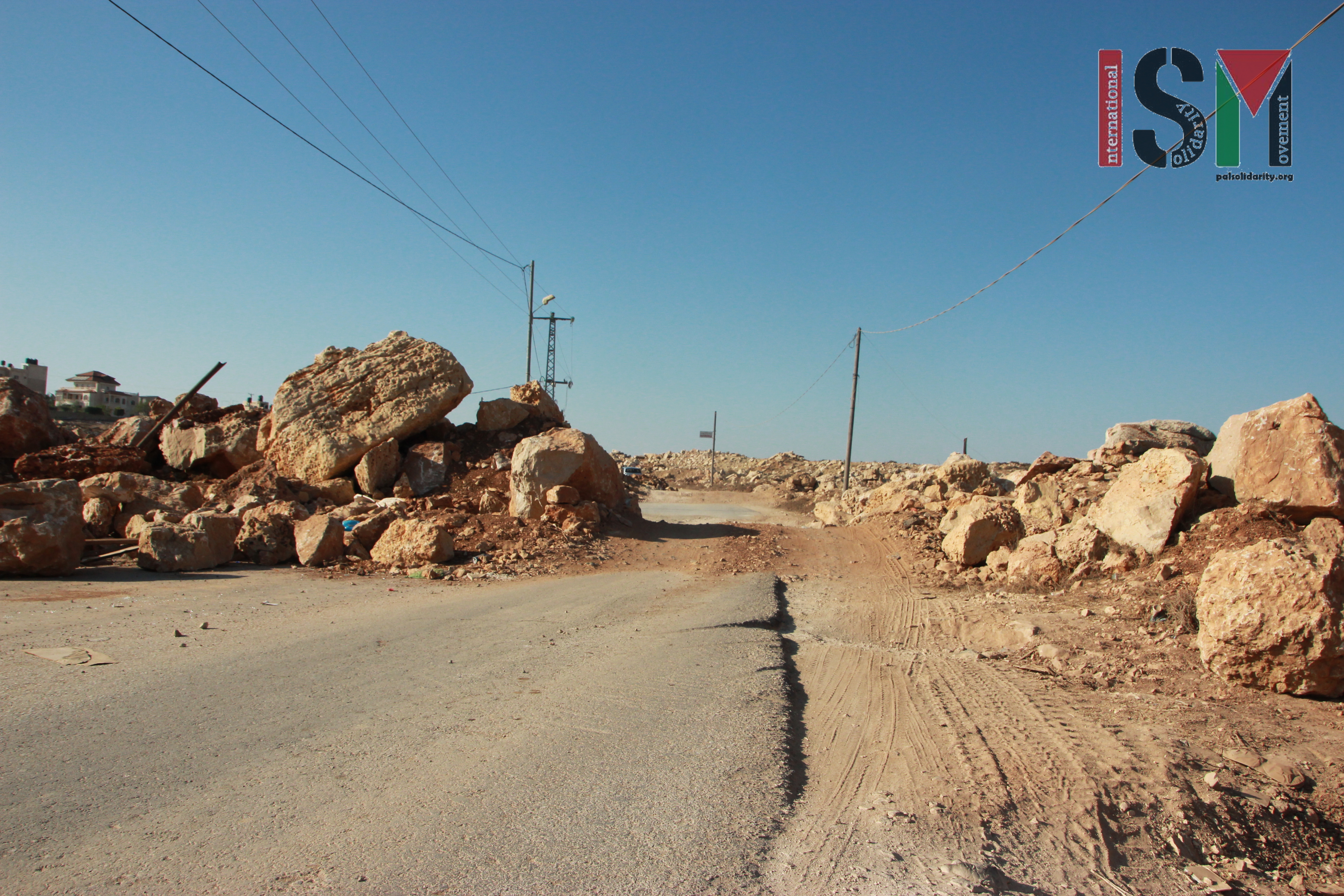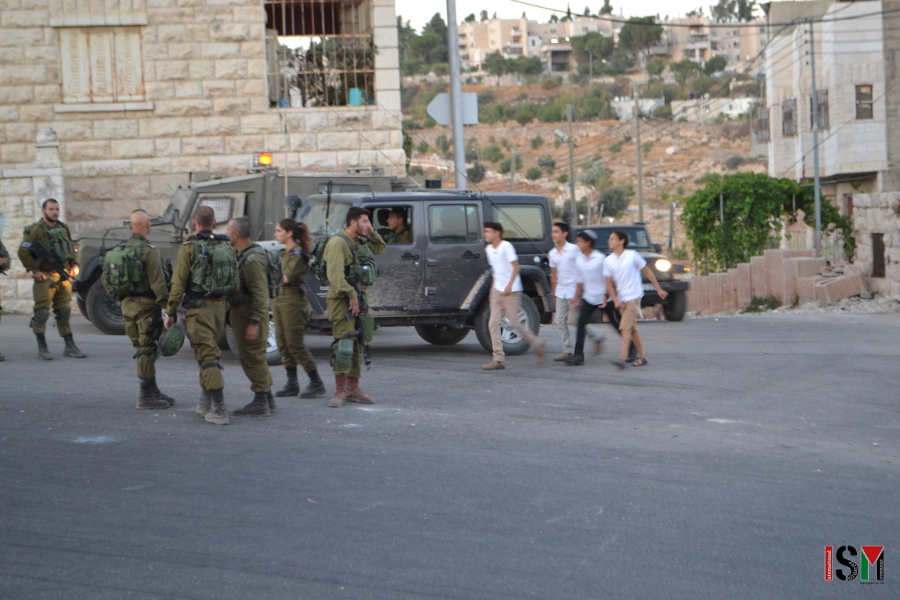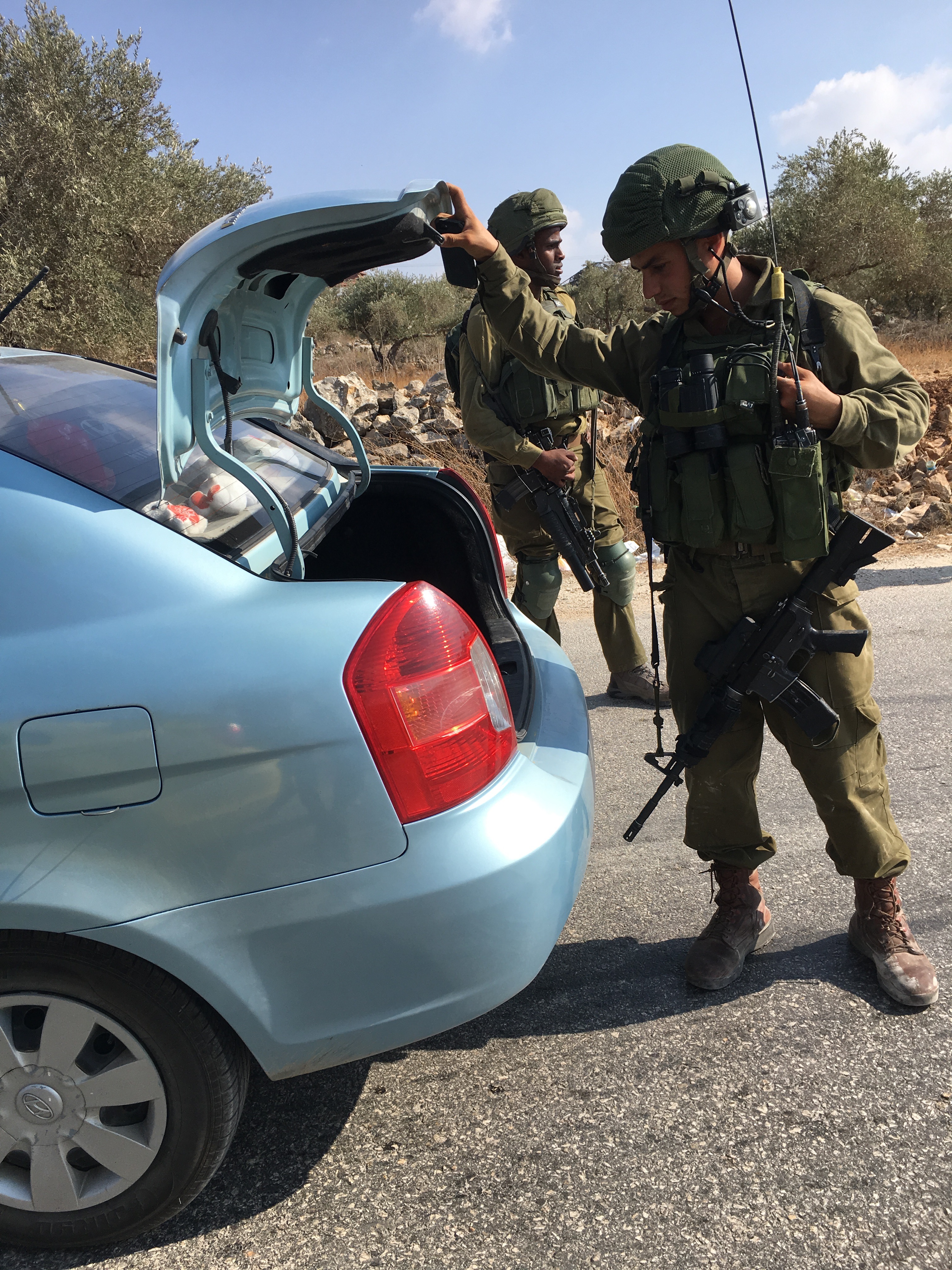Tag: Settlers
-
Settlers from illegal Halamish settlement block Route 450 for Palestinians in revenge
20th August 2017 | International Solidarity Movement, Huwwara-team | Nabi Saleh, occupied Palestine On 23rd July, two days after the killing of three settlers from the illegal settlement of Halamish, settlers blocked Route 450 with self-made barricades preventing Palestinians from using the main road, which connects Nabi Saleh village with the south Baytillu . The…
-
Heavy military presence on important road in Hebron
20th August 2017 | International Solidarity Movement, al-Khalil team | Hebron, occupied Palestine On Friday evening the Al Khalil team surveyed the intersection of prayer road. The route leading north towards the illegal settlement Kiryat Arba had Israeli soldiers posted all along, with several military vehicles stationed by the intersection. Both settlers and Palestinians crossed…
-
Israeli army restrict international access to Kafr Qaddum during confrontation
17th August 2017 | International Solidarity Movement, Nablus-team | Kafr Qaddum, occupied Palestine Israeli occupation forces blocked international access to Kafr Qaddum on Saturday, before apparently attacking Palestinian demonstrators for the second time in two days. The Israeli military set up a road block at the entrance to the village, which has seen weekly demonstrations…



